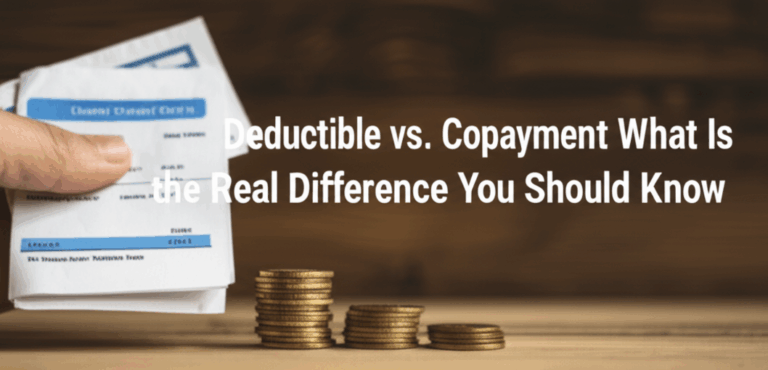Medicare vs private health insurance which one is right for you

Choosing between Medicare and private health insurance can seem hard. Each option fits different situations. In this article, we compare Medicare vs private health insurance and help you understand which one might fit you better.
You will see how these insurance types work, the costs you may face, and which one gives you better value for your needs. Keep reading to find answers to your most asked questions and tips for making a smart health insurance choice.
What are the key things to know about Medicare and private insurance
When I help people compare Medicare and private insurance, I see important details. Both choices cover basic care but have unique rules. Medicare covers everyone who meets federal guidelines. Private health insurance offers more flexibility and extra benefits for some. Knowing which fits can save you money and stress later.
Medicare covers basic hospital and doctor care. This means you get coverage for hospital stays, outpatient care, and some preventive screenings. Everyone who signs up for Medicare Part A and Part B gets these basics. For example, my neighbor paid nothing for his overnight hospital stay with Medicare. However, he had to pay for some medicines and medical equipment out of his own pocket, as Medicare does not cover everything.
Private insurance offers wider plan choices and extras. These may include vision, dental, and wellness programs. People sometimes want plans that cover family members, and private coverage can do that. A family at my old job saved money by moving to a group plan through their employer, which included gym perks and mental health support they did not find with Medicare.
Understanding eligibility and enrollment rules is important. Medicare usually starts at age 65 or when you have a certain disability. Private coverage and group plans have annual open enrollment or require a qualifying life event for changes. If you miss a sign-up date, penalties and coverage gaps can hurt your finances for a long time.

Which health costs matter most for your budget
Budget can influence your insurance choice more than you expect. I worked with a friend last year. She thought Medicare was always cheaper. But after seeing all costs, private coverage made sense for her family.
Medicare has set premiums and deductibles. Medicare Part A is free if you paid Medicare taxes long enough. Part B has a set premium everyone pays, plus a yearly deductible. Medigap and Medicare Advantage plans help cover extra costs. These plans can help with copays, out-of-pocket fees, and some drug costs. The Medicare program publishes rates, so you always see exact numbers upfront.
Private plans may offer family savings or higher out-of-pocket fees. Employer-sponsored plans sometimes lower your monthly premium if your whole family signs up. But some private plans have bigger out-of-pocket maximums and higher deductibles. You should always check those numbers and compare with what you’d pay on Medicare, especially if you see doctors or specialists often.
Checking prescription and extra service costs can help you choose. Drug coverage changes a lot between plans. For example, my cousin takes medicine daily for her heart. Her private health coverage included both the brand name and generic, while Medicare Part D only covered generic. Extra benefits like dental or vision are sometimes included with private options but often require extra Medicare supplement plans on Medicare.

Who gets the most benefit from each type of insurance
In my experience, your age, job, and health shape your best choice. Many younger people stick with employer plans, while those near retirement look at Medicare options. Everyone needs to ask – which coverage fits my health needs?
Your age and health needs often guide your choice. People with chronic conditions may benefit from the regular costs and wider provider networks of some private plans. If you see the doctor a lot, out-of-pocket caps and co-insurance rates matter more. Someone who visits the doctor twice a year may save with Medicare.
People with employers can often get private coverage. Group plans help many families save money. Large employers sometimes pay a portion of your premium. In my work, I found that people who get insurance through jobs usually pay less per person. You may want to check with your HR department before you turn 65 and consider Medicare, as you may qualify for both.
Medicare is usually for those 65 or older or with certain disabilities. You can qualify for Medicare early if you have a specific health condition, like End-Stage Renal Disease. For most, though, the eligibility age is 65. Medicare eligibility is straightforward but the enrollment period is short. If you miss it, you might pay more or lose out on benefits for a whole year.

When can you use both Medicare and private insurance together
Some people get the best of both worlds. You can keep private insurance and add Medicare when you qualify. It takes planning, but it can give you peace of mind and better coverage.
Some people qualify for both types and can coordinate benefits. You may keep job insurance as your main plan and use Medicare as your backup. When you use both, the two plans work together. For instance, Medicare may pay first, and then your private plan covers the rest. My client with both had a lower out-of-pocket cost for surgery because her plans shared costs.
Rules for who pays first depend on job size and plan type. If your company has 20 or more employees, your employer insurance pays before Medicare. If you work for a small business, Medicare may pay first. Knowing who pays first is key to avoiding surprise bills. I always remind people to ask both insurance companies for a written summary of what is covered before scheduling care.
[Patient showing medical ID cards to a doctor at a clinic]
What pitfalls should you avoid when choosing between these plans
I have seen people fall for simple mistakes. Knowing common pitfalls saves you money and trouble.
Hidden costs, network rules, and coverage gaps are common issues. Private insurance may limit you to a network of doctors. Medicare does not cover dental, vision, or long-term care unless you add a supplement. Review the summary of benefits from each plan before deciding. I once helped a family who picked a cheap plan, only to learn it did not cover their favorite doctor or any brand name medicines.
Missing sign-up deadlines can lead to penalties and gaps. If you do not enroll for Medicare during your initial or special enrollment period, you may pay higher premiums forever. Most private plans only let you sign up or switch during open enrollment or after a major life change.
For more on what to watch for, check out our guide to avoid common health insurance mistakes.
How do different plans cover common treatments and medicines
Both Medicare and private health insurance pay for common care, but they do so in different ways. It pays off to study your options before you get sick.
Medicare and private plans both have drug coverage options. Medicare Part D and most private health plans use drug lists called formularies. These lists show which drugs they cover and how much you pay. Some plans include mail-order delivery to save money on repeat prescriptions.
Coverage for specialists and emergency care can vary widely. Private insurance may require referrals before you see a specialist. Medicare lets you see any doctor who accepts Medicare. Emergency coverage is strong in both but check for surprise bills in the fine print. Our site has tools to compare provider networks and out-of-pocket costs using health insurance comparison options.
What else can help you make a smart insurance decision
When you feel stuck, support is available. We know comparing plans is hard, so here are tools that help you take action.
Using online tools and comparing plan summaries helps a lot. I like to use the Medicare Plan Finder for supplement and advantage plan comparisons. Private insurers list all summary plan details on their sites. When my aunt compared her options, she made a chart listing deductibles, copays, and extras side by side.
Talking to licensed agents or counselors can ease confusion. Certified insurance brokers work for you and sometimes cost nothing to use. Many communities offer free counseling sessions for Medicare enrollment. I once spoke to a licensed Medicare agent when choosing a plan, and it made everything easier to understand. Learn more about ways to get expert health insurance help on our Medicare resources page.
Related:
What are the most asked questions about Medicare vs private insurance FAQ
- Who is eligible for Medicare and what does it cost? Yes, most people over 65 or those with disabilities qualify. Costs include Part B premiums, which update every year.
- How do I switch from private insurance to Medicare? First, sign up during your initial enrollment period. Notify your private insurer to end coverage on the correct date.
- Can I use Medicare with employer health coverage? Yes, in many cases you can have both. The bigger plan usually pays first.
- What services do private plans cover that Medicare does not? Private plans may cover dental, vision, gym memberships, and alternative therapies.
- Is Medicare or private insurance better for people with dependents? Private plans often serve families better since Medicare only covers individuals.
- Can I keep my doctor with Medicare or private insurance? It depends on the plan network. Always check if your doctor is in-network.
- What happens if I delay signing up for Medicare? You may pay late enrollment penalties for Part B and Part D.
- How do out-of-pocket costs compare between Medicare and private insurance? It varies. Use our comparison guides to see which fits your needs.
What did we learn about Medicare and private insurance today
Reviewing your needs and comparing plans gets you the best outcome. Both Medicare and private health insurance offer value, but which is best depends on your age, budget, and health needs. Taking action early saves money and stress. To stay protected, use checklists and professional help when comparing Medicare vs private health insurance.







